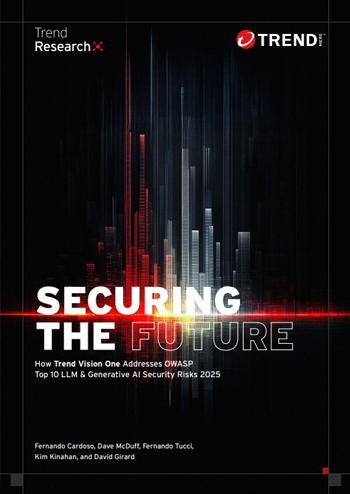 Download the white paper
Download the white paper
By Fernando Cardoso, Dave McDuff, Fernando Tucci, Kim Kinahan, and David Girard
According to the World Economic Forum's Global Cybersecurity Outlook 2025, only 37% of organizations have processes in place to assess the security of AI tools before deployment. This alarming statistic highlights the significant security gap as businesses rush to implement AI technologies without adequate protection measures.
Large language models (LLMs) have become the driving force behind today’s most recognizable and widely adopted form of AI. From internet-wide AI assistants to tools embedded across industries, LLMs are changing how organizations handle data, interact with customers, and conceive further innovation.
Yet with every technological leap comes new risk. The power of LLMs inevitably introduces security challenges that can lead to unanticipated and serious consequences. That’s where the OWASP Top 10 for LLM Applications comes in, identifying and preparing industries for the most critical vulnerabilities in this developing AI landscape.
The real question now is how organizations can turn awareness of these risks into actionable solutions. Trend Micro offers answers with Trend Vision One™, an enterprise cybersecurity platform designed to address these vulnerabilities.
Key Components of Trend Vision One
Trend Vision One is a platform that provides integrated protection across AI, endpoints, networks, cloud environments, email systems, and more. It does this through the combination of key components, outlined here:
Zero Trust Secure Access
Secures all access, internal and cloud, across users, devices, location, and environments at any time, using private access, internet access, and risk control rules.
ZTSA AI Service Access
Controls and inspects traffic to and from public and private generative AI services, which helps prevent prompt injection, unauthorized use, and abuse of AI endpoints.
AI Security Posture Management (AI-SPM)
Provides visibility into AI-related cloud assets, detecting misconfigurations, unauthorized access, and potential attack paths.
AI Application Security
AI Scanner detects risks and threats, while AI Guard blocks prompt injection, data leakage, and other attacks from development through real time use.
Container Protection
Ensures that only trusted containers are deployed and keeps pipelines monitored for threats, vulnerabilities, and compliance violations.
TippingPoint™
Delivers real-time, in-line threat protection for AI infrastructure by preventing exploitation of vulnerabilities through network-based attacks.
Server & Workload - Intrusion Prevention System
These Endpoint protection rules safeguard AI servers and workloads against known and zero-day vulnerabilities through automated virtual patching.
Mapping Solutions to the OWASP Top 10 for LLM Applications (2025)
By combining these components, Trend Vision One provides a comprehensive approach that addresses seven of the ten OWASP-identified Top 10 LLM risks, with additional coverage currently in development.
| Risk | Implication | Solution |
|---|
| LLM01:2025 Prompt Injection | Prompts alter the LLM's behavior or output in unintended ways | ZTSA AI Service Access – input/output filtering, validation, and access control |
| LLM02:2025 Sensitive Information Disclosure: | Exposure of sensitive data, proprietary algorithms, or confidential details through LLM output | AI-SPM, ZTSA AI Service Access (monitoring), TippingPoint, Server & Workload – Intrusion Prevention System, AI Red Teaming (in development) |
| LLM03:2025 Supply Chain | Compromised models or third-party components affecting training data, models, and deployment platforms | Container Security, AI-SPM, TippingPoint, Server & Workload – Intrusion Prevention System |
| LLM05:2025 Improper Output Handling | Insufficient validation, sanitization, and handling of LLM-generated outputs causing downstream risks | ZTSA AI Service Access – output sanitization and throttling |
| LLM06:2025 Excessive Agency | LLMs granted too much autonomy or access to functions and systems | ZTSA AI, AI-SPM – access control and auditing |
| LLM08:2025 Vector and Embedding Weaknesses | Injection, manipulation, or exposure of sensitive information through vector and embedding weaknesses | Container Security, TippingPoint, Server & Workload – Intrusion Prevention System |
| LLM10:2025 Unbounded Consumption | Resource abuse through excessive and uncontrolled LLM inferences, leading to denial of service, economic losses, model theft, and service degradation. | ZTSA AI Service Access – rate limiting, throttling |
Table 1. Overview of Trend Vision One solutions addressing seven of the top LLM security risks identified by OWASP in 2025
With these components in place, Trend Vision One provides a strong foundation for securing LLM applications, with advanced capabilities actively being developed to address the remaining OWASP Top 10 AI vulnerabilities:
- Data and Model Poisoning (LLM04): Our security roadmap prioritizes sophisticated detection mechanisms to identify and prevent poisoning attempts that could compromise model integrity. These protections will safeguard the entire AI lifecycle, from development to deployment, ensuring your models remain trustworthy and reliable.
- System Prompt Leakage (LLM07): To combat the risk of prompt exposure, we're developing comprehensive audit capabilities that enable regular, systematic security reviews of all prompt handling processes. These tools will help identify vulnerabilities in how prompts are stored, transmitted, and accessed, ensuring your proprietary instructions and intellectual property remain protected from unauthorized extraction or manipulation.
- Misinformation (LLM09): To combat the growing challenge of AI-generated misinformation, our roadmap includes advanced content verification tools that analyze outputs for accuracy, bias, and potential harm. These capabilities will help maintain trust in your AI systems and protect your brand reputation.
As a Gold Sponsor of the OWASP Top 10 for LLM and Gen AI project, Trend Micro demonstrates our commitment to not just following industry standards but actively shaping them. This strategic involvement ensures our customers benefit from security solutions that anticipate emerging threats before they impact your business.
From Insights to Solutions
The OWASP Top 10 for LLM Applications is an essential resource, identifying the most urgent security concerns in one of today’s most widely used forms of generative AI. However, a list by itself is not enough.
Real value comes from concrete steps to act on what OWASP outlines. With Trend Vision One, Trend Micro transforms these insights into defenses and embeds security into AI innovation.
Learn more about each vulnerability on the list and get a more detailed look at how Trend Micro’s integrated security aligns with OWASP’s guidance for LLM applications by downloading this white paper.
 Download the white paper
Download the white paper






 Complexity and Visibility Gaps in Power Automate
Complexity and Visibility Gaps in Power Automate AI in the Crosshairs: Understanding and Detecting Attacks on AWS AI Services with Trend Vision One™
AI in the Crosshairs: Understanding and Detecting Attacks on AWS AI Services with Trend Vision One™ Trend 2025 Cyber Risk Report
Trend 2025 Cyber Risk Report The Road to Agentic AI: Navigating Architecture, Threats, and Solutions
The Road to Agentic AI: Navigating Architecture, Threats, and Solutions